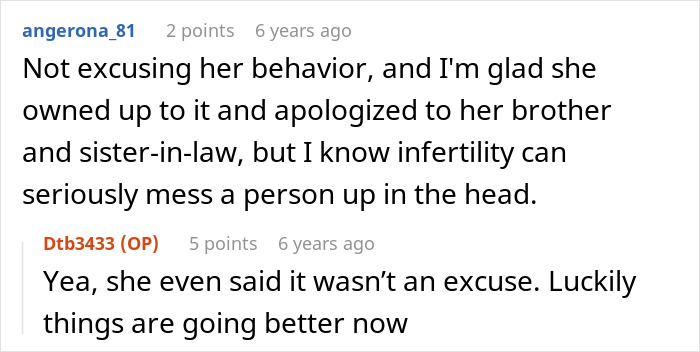Boundaries mean everything. If they’re not there, you might find yourself at the mercy of other people’s whims. However, enforcing healthy boundaries with your family members is easier said than done. Things can get emotionally messy, even if you’re being as rational and reasonable as possible.
Internet user u/Dtb3433 flabbergasted the Entitled Parents subreddit with some spicy family drama. They shared how their sister-in-law tried to steal her brother-in-law’s baby boy because she assumed he didn’t want him. Things escalated to a ridiculous degree, including ruined events, CPS, and court cases. Scroll down to find out how things developed… and keep an eye out for the surprise twist at the end.
Navigating family arguments is tough enough as it is, without having to deal with someone who’s going through a major personal crisis

Image credits: Alexander Mass / Pexels (not the actual photo)
One internet user shared how their brother-in-law and his wife announced that they were having a baby boy, and how this made a relative of theirs spiral into toxic behavior
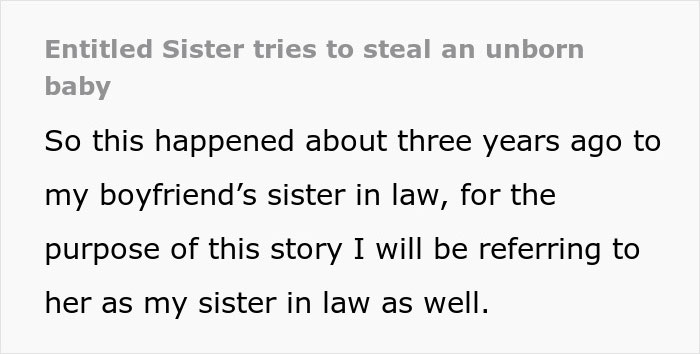
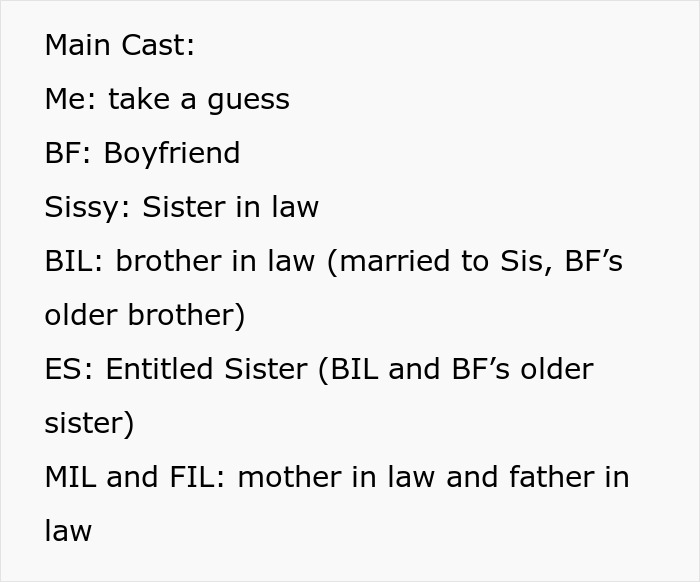



Image credits: Ivan Samkov / Pexels (not the actual photo)
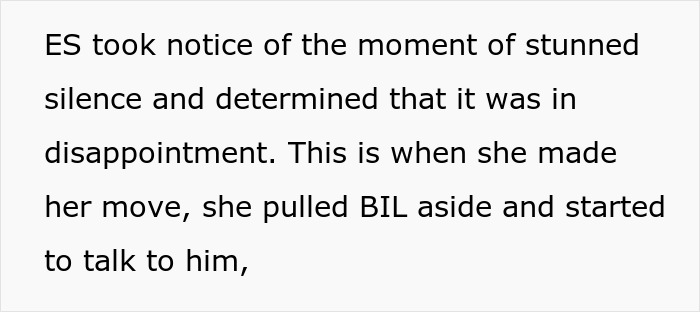
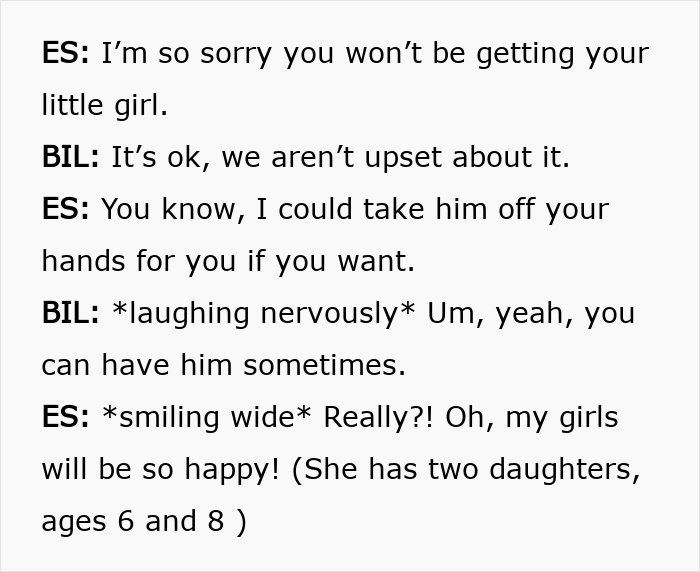
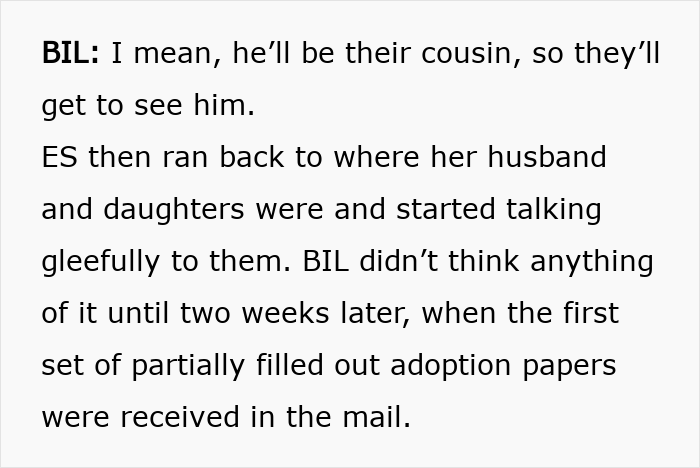

Image credits: Nataliya Vaitkevich / Pexels (not the actual photo)
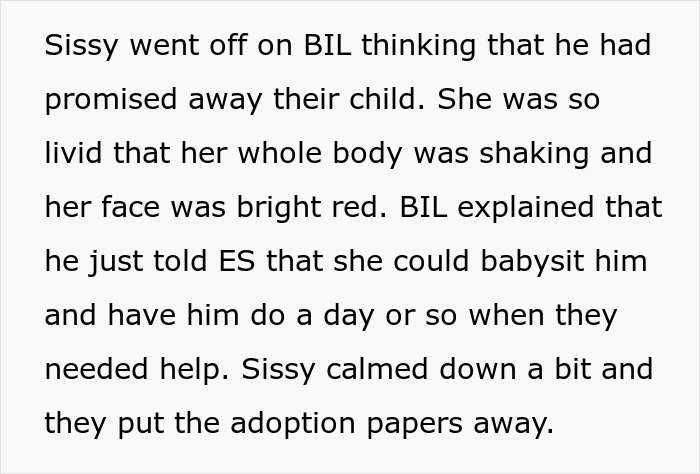
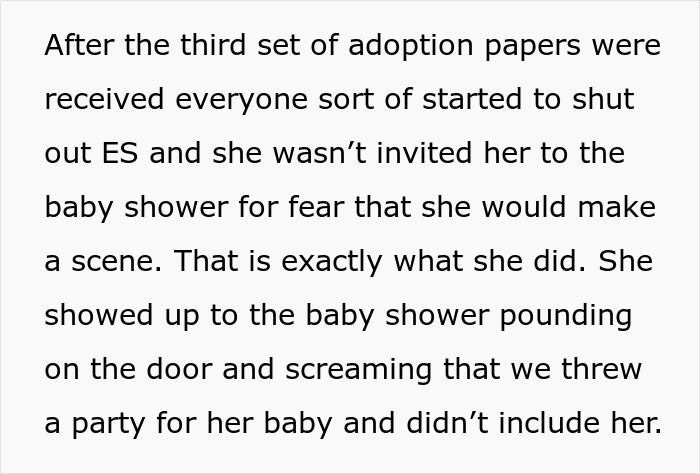

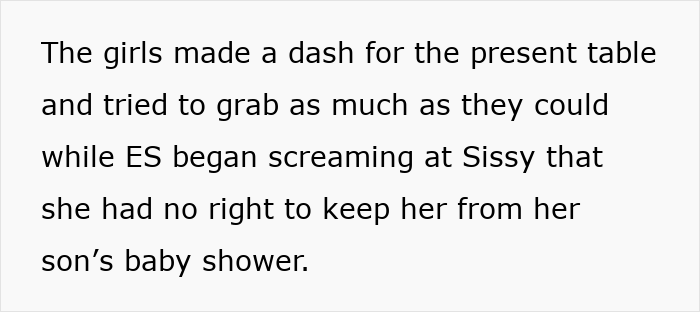

Image credits: Blake Cheek / Unsplash (not the actual photo)
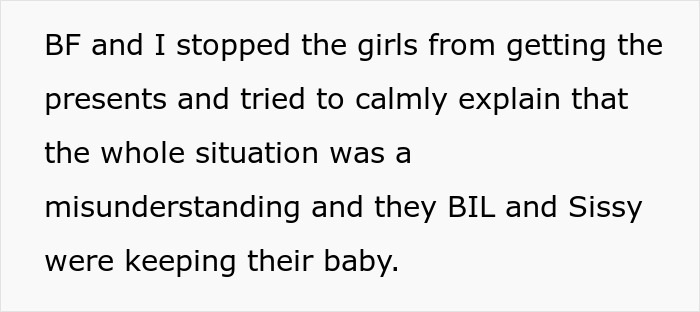
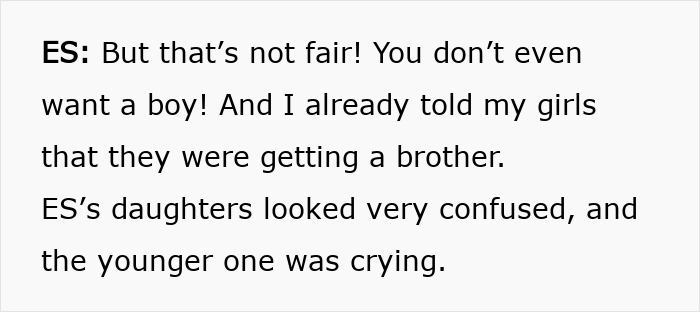
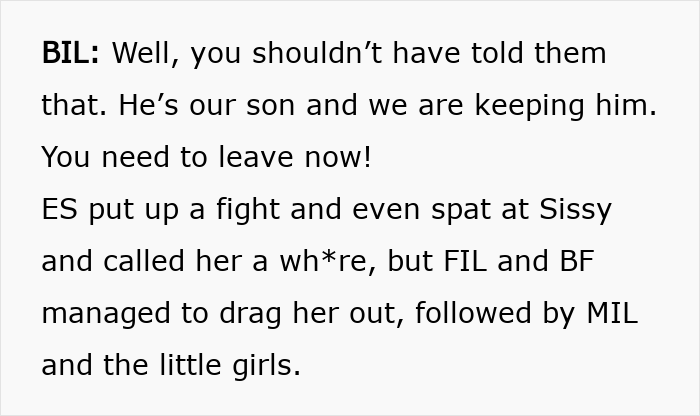

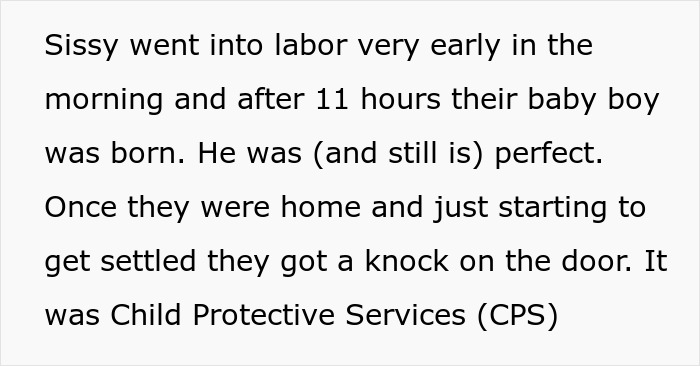

Image credits: Connor McManus / Pexels (not the actual photo)

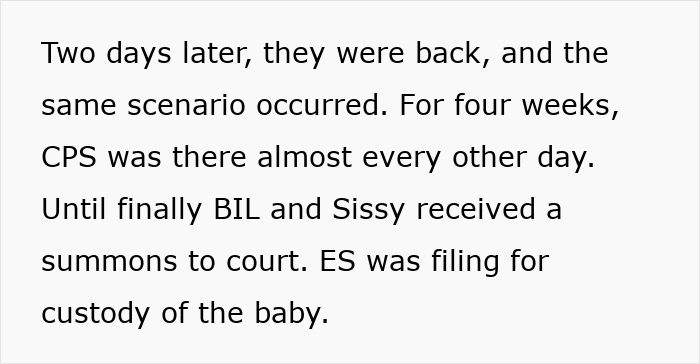
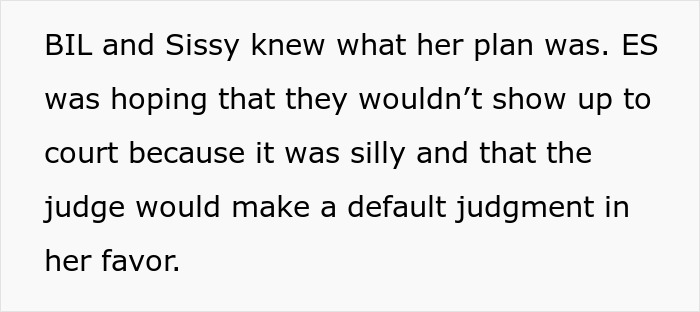



Image credits: Getty Images / Unsplash (not the actual photo)
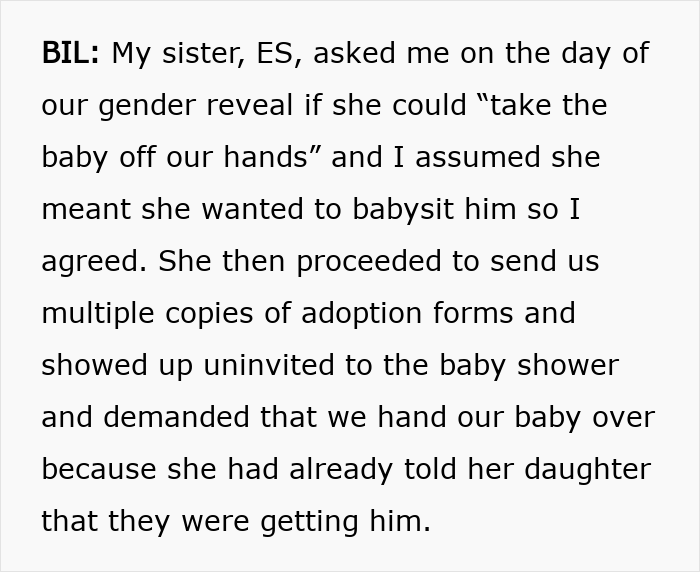


The story didn’t end there. Fast-forward about a year
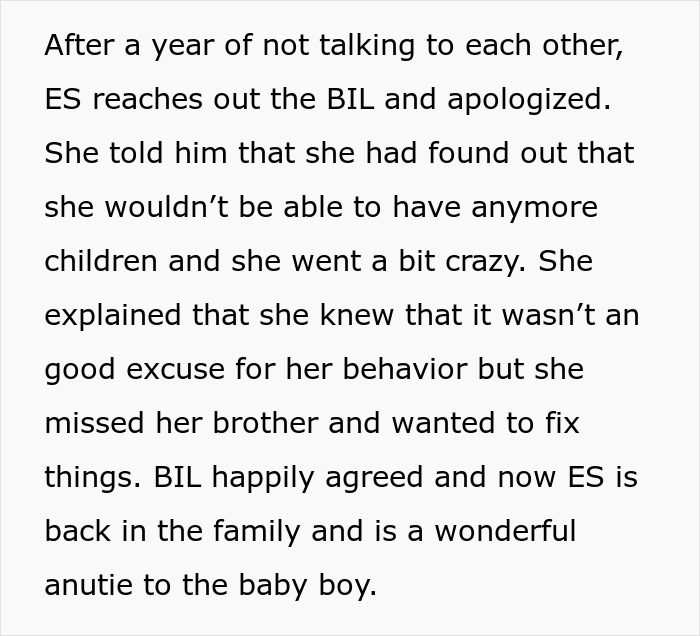

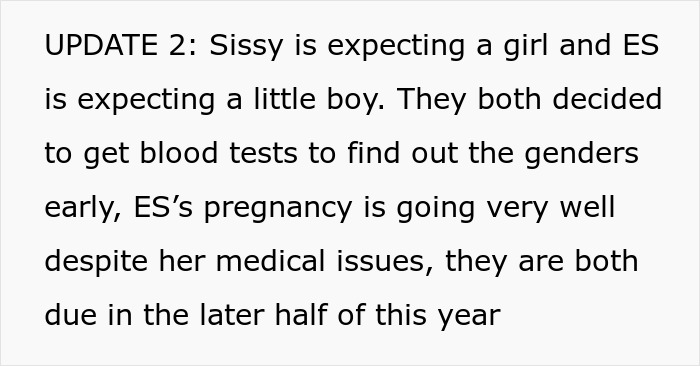
Image credits: Dtb3433

Image credits: Jopwell / Pexels (not the actual photo)
When it comes to setting healthy boundaries, you must be as clear and assertive as possible
Boundaries are what help you prioritize your wants and needs and protect your well-being. According to psychotherapist Ilene S. Cohen, Ph.D., boundaries are the limits that we set with other people.
You use them to indicate the things that you find (un)acceptable in their behavior toward you.
“They help define who we are and help us maintain our mental and emotional health. They are not walls to keep others out; they are guidelines that help us express our needs and expectations clearly and assertively,” Cohen explains in a piece on Psychology Today.
A core part of protecting your boundaries is consistency. If you can’t consistently set and enforce your boundaries, you’re essentially sending out mixed signals. So, when people are confused about what you do and do not find acceptable, they can end up violating your boundaries even more.
“Being consistent means expressing your boundaries verbally and reinforcing them through your actions. If you say you need some quiet time in the evenings, don’t answer non-emergency calls during this time,” Cohen gives an example.
In other words, you have to follow through with the limits you set out. Theoretical boundaries mean nothing if there are no consequences for ignoring them.

Image credits: Pavel Danilyuk / Pexels (not the actual photo)
Being assertive doesn’t mean being disrespectful. Quite the opposite
Positive Psychology stresses that self-awareness is vital in order to set healthy boundaries. “We need to be clear about our expectations of ourselves and others, and what we are and are not comfortable with in specific situations. Setting healthy boundaries requires good communication skills that convey assertiveness and clarity.”
Here, assertiveness means expressing your feelings openly and respectfully, not making demands or raising your voice.
You have to assert your needs and priorities, be clear and straightforward. Be direct and focus on expressing what you want or need, instead of what you don’t want or like.
Furthermore, you have to be willing to accept the discomfort that might occur as you set your boundaries. You might feel ashamed, guilty, or even remorseful. But that’s part of the process.
If you can’t embrace those awkward, uncomfortable feelings, you may end up having unhealthy relationships where you’re manipulated and feel resentful.

Image credits: juliane Monari / Pexels (not the actual photo)
Boundaries help protect your physical and mental health
Some of the most common examples of healthy boundaries, as per Positive Psychology, include the following:
- Saying ‘no’ to anything you don’t want to do
- Responsibly expressing your feelings and honestly talking about your experiences
- Addressing any problems directly with the person, instead of through a third party
- Clarifying your expectations, instead of assuming that others will figure them out
In short, the clearer you are, the more open, honest, and transparent you are with everyone in your life, the more likely it is that everyone’s on the same page. And that means fewer misunderstandings and, hopefully, fewer arguments and less drama all around.
What are your thoughts about the bizarre family drama the internet user described in their online post? How would you have handled the situation if you were the baby’s parent? What do you think about the way the entire story ended?
Have you ever cut someone close out of your life? You can share your thoughts in the comments.
Some folks were confused why the family let the entitled woman back into their lives after all the drama





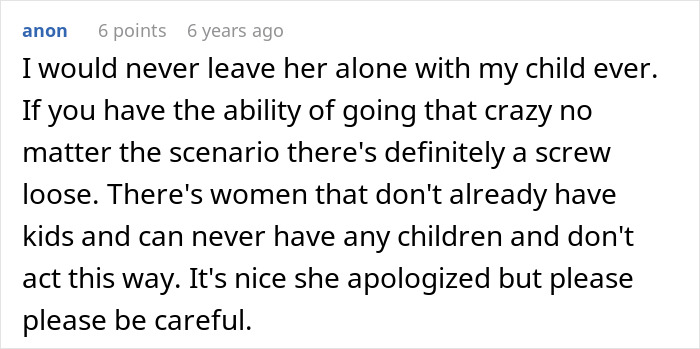




Quite a few readers shared how glad they were that the story had a happy ending
